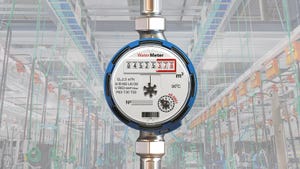
Insight and analysis on the data center space from industry thought leaders.
Why Reliable Power Protection is Critical for Data Center OperatorsWhy Reliable Power Protection is Critical for Data Center Operators
It’s somewhat surprising that many operators consider reliable power protection to be low on their list of priorities, even though it can have major implications for data loss.
April 14, 2016

John Collins is a Product Line Manager for Eaton.
You may not know it, but last month we celebrated World Backup Day, in which the tech industry encouraged both consumers and professionals to back up their important data. The occasion served as a good reminder for data center professionals that backing up critical data means having the right power protection strategy in place to ensure data center downtime doesn’t translate into lost revenue for their businesses.
But not everyone took notice. In fact, it’s somewhat surprising that many operators consider reliable power protection to be low on their list of priorities, even though it can have major implications for data loss. During the course of operation, power sags, surges and outages are unavoidable, and more than capable of damaging valuable IT equipment and cutting off access to important data. Because of this, it’s essential that data center operators incorporate a robust power protection solution into their overall data center design strategies.
This article will provide an introductory overview of why comprehensive power protection is critical to ensuring continuous uptime in the data center. Additionally, we’ll look at an example of how one data center operator, ByteGrid, recently implemented a comprehensive power management and monitoring solution to help ensure reliability and reduce the risk of downtime in its facility.
Why Power Protection Matters
No company can afford to leave its IT assets unprotected from power issues. Here are just a few of the reasons why:
Even short outages can be trouble. Losing power for as little as 1/50 of a second can trigger events that may keep IT equipment unavailable for anywhere from 15 minutes to many hours. This downtime can be enormously costly for the business. Some experts believe the U.S. economy loses between $200 billion and $570 billion a year due to power outages and other disturbances.
Utility power isn't clean. By law, electrical power can vary widely enough to cause significant problems for IT equipment. According to current U.S. standards, for example, voltage can legally vary from 5.7 percent to 8.3 percent under absolute specifications. That means that what utility services promising 208 volts actually deliver can range from 191 to 220 volts.
The problems and risks are intensifying. Today’s storage systems, servers and network devices use components so miniaturized that they falter and fail under power conditions earlier-generation equipment easily withstood.
Generators and surge suppressors aren’t enough. Generators can keep systems operational during a utility outage, but they take time to startup and provide no protection from power spikes and other electrical disturbances. Surge suppressors help with power spikes but aren’t capable of aiding with issues like power loss, under-voltage and brownout conditions.
Availability is everything. Once, IT played a supporting role in the enterprise. These days it’s absolutely central to how most companies compete and win. When IT systems are down, core business processes quickly come to a standstill.
Power costs must be managed. The cost of power and cooling has spiraled out of control in recent years. Data center managers are typically held responsible for achieving high availability while simultaneously reducing power costs. Highly efficient UPS systems can help with this goal, and products are available today that were not an option even a few years ago.
This should serve as a sobering reminder to data center managers that they simply cannot afford to go without reliable backup power as part of a comprehensive power protection strategy. Now we’ll look at how one data center operator realized the critical nature of power management as it grew its multi-tenant facility, and took the necessary steps to implement it.
ByteGrid Case Study
When ByteGrid, a leading provider of complaint hosting solutions, began planning a major expansion of its Cleveland Technology Center (CTC) – the city’s largest multi-tenant facility – the company embraced a lofty aspiration: to deliver customized data center solutions with the highest level of compliance. The company pledged to tailor the exact space that each of its customers desires, not a one-size-fits-all approach that many other multi-tenant facilities take. To achieve this, ByteGrid’s project leaders knew they needed to implement a robust power management solution within the company’s exceptionally secure, 333,215-square-foot Tier 3 space.
Understanding the importance of reliable power protection, ByteGrid installed two uninterruptible power systems (UPSs), each consisting of 2 x 750 kW, which ByteGrid expected to lower total cost of ownership (TCO) by leveraging groundbreaking energy saving technology while increasing power system reliability.
Conclusion
Data center downtime is unacceptable for any operator, which is why it’s critical to implement reliable backup power management solutions as part of their data center design strategy, whether building a new facility or expanding an existing one. ByteGrid provides a strong example of one such company that understood the importance of having reliable power protection solutions in place and took the needed steps to make its vision a reality. Operators should take a good look at ByteGrid’s example when reviewing their own power management needs and consider adding new power protection capabilities to lower costs and reduce the risk of costly outages in their own facilities.
Industry Perspectives is a content channel at Data Center Knowledge highlighting thought leadership in the data center arena. See our guidelines and submission process for information on participating. View previously published Industry Perspectives in our Knowledge Library.
About the Author
You May Also Like









